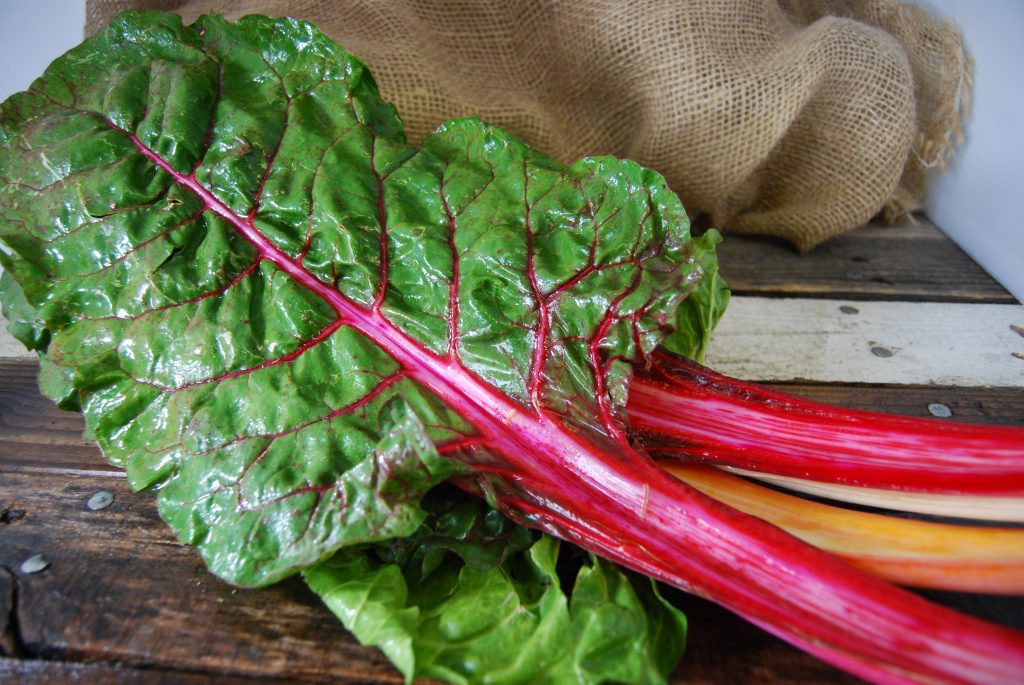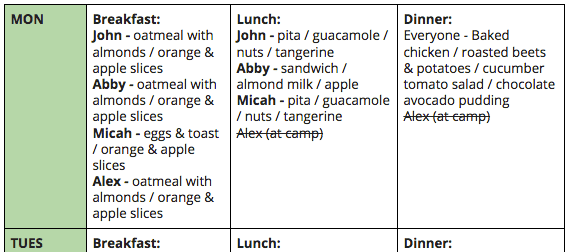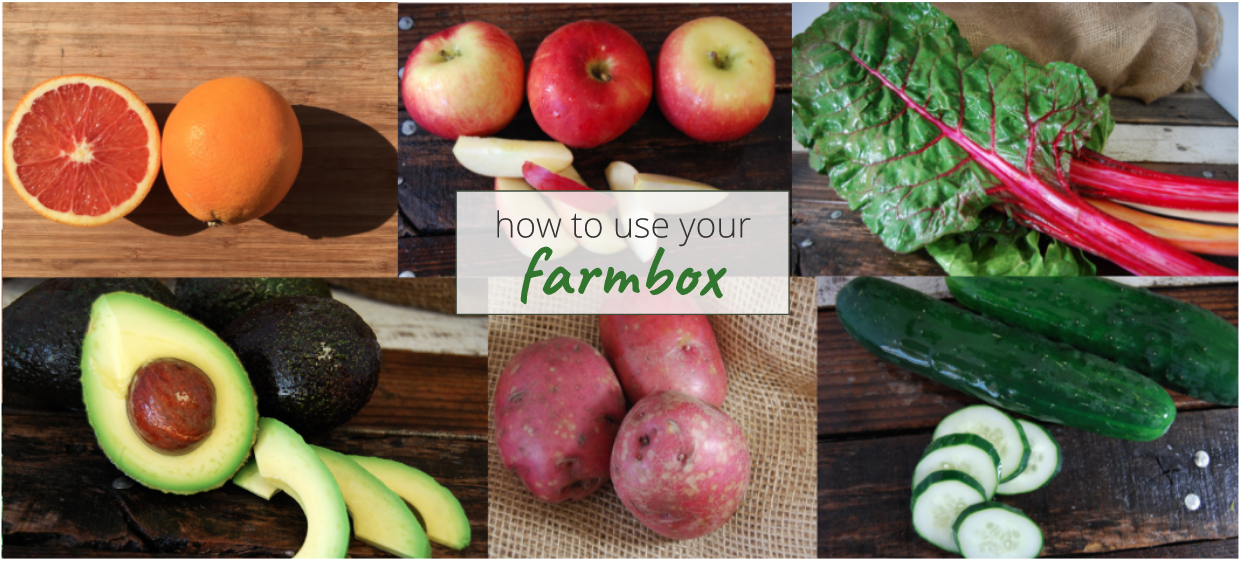Start putting these 3 tips to work now to use everything in your weekly farmbox!
Let’s face it: you’re busy. Between work, family, and social obligations, it’s hard making the time to take care of yourself, but it’s something you’ve got to do to maintain both your wellbeing and productivity levels.
A huge part of taking care of yourself is putting good “fuel” in your body. While there are plenty of fad diets and seemingly conflicting health claims out there, one thing virtually every nutrition scientist agrees on is that Americans eat far too few fruits & veggies.

Mmm, rainbow chard. So many potential uses for any meal. Breakfast: sauteed with onions and put in an omelette; lunch: stir fried as a side; dinner: rainbow chard potato casserole.
We want to help change this! How? For starters, we want to source the freshest produce from top local farmers and conveniently deliver it to your doorstep. But that’s only half of it…
Since many of us are one or two generations removed from knowing how to cook or prepare healthy whole food meals, that means we’ve got to also help teach you how to use the fresh fruits & veggies we provide.
3 Tips: How to Use EVERYTHING In Your Weekly Farmbox
Every person and every family is a little different. That’s why we offer multiple types of farmboxes and multiple sizes so you can choose the one that’s perfect for you – and you can also customize or add items to your farmbox each week. (You can see exactly what’s coming in our pre-packed farm boxes on the What’s In My Box page or go to our Build A Box to customize your order.)
Whether you have 5 children and a spouse to feed or just you and a roomate, these tips will help you use everything in your weekly farmbox!
Tip 1: Rank Each Farmbox Item By Perishability
A potato can last a lot longer than a fresh head of lettuce. What should you do with that information? You should probably plan to eat your lettuce as fast as possible, but you don’t necessarily have to eat your potatoes right away.

The green Salanova lettuce available this week is screaming “eat me first!” This lettuce will only last 3-7 days in the fridge but will make a delicious base for a salad when eaten at peak freshness. (Prep time: 5-10 minutes)
When you first get online to see what’s in your farmbox in a given week (or find out when you open your farmbox), make a quick written list of what’s most and least perishable. This doesn’t have to be super-precise, it can be as simple as this:
- Need to eat within 3-5 days (examples: lettuce, sprouts)
- Need to eat within 5-10 days (examples: tomatoes, avocados)
- Need to eat within the next month (examples: potatoes and apples)

The red potatoes available this week will last for several months when stored in the fridge.
Tip 2: Make a Weekly Meal Plan
If you’re a parent, there’s a good chance that you’re already doing a weekly meal plan, so this isn’t something new for you. If meal planning is new to you, there are lots of handy online resources to help you get the hang of it, but here are some basic tips to help you incorporate your farmbox:
- Make a hand drawn grid or online spreadsheet for each meal you have to plan that week and who needs a meal.
- Consider how much time you have to prep for the given meal (probably more for dinner than for lunch or breakfast);
- Incorporate the items that are most perishable as early as possible into your weekly meals.
- Use the internet to search for recipes based on the ingredients you already have, don’t simply choose a recipe and then make another shopping trip for yourself.
- Keep it simple, but be adventuresome. It’s easy and necessary to have some favorite meals that you use over and over again, but make room for some adventure on your plate! For instance, 90% of your meals in a given week might be tried and true favorites, but have a goal to use new ingredients and new recipes for 10% of your meals. That makes sure you’re getting dietary diversity and also allows you to discover new favorites. Another “keeping it simple tip”: don’t mess with perfection. A ripe tangerine or apple doesn’t need much fancying up if you’re busy – just plop them in the lunch box whole.

An example of what one day on a weekly meal plan might look like.
Tip 3: Family Feedback, Rankings, and Participation
Cooking shouldn’t be relegated to a folk art given how important good food is to your health and how much better for your budget a home-cooked meal is compared to eating out.
Do you want your children and spouse to learn to cook? Do you want to improve your cooking skills? Make meal prep a family affair with a weekly family meeting at the dining table. Since the best way to learn is by doing, switch out the “head chef” and “sous chef” roles for designated meals each week. (You can even have a “chef’s hat” that the person in charge has the honor of wearing!)

You don’t have to be a great head chef to make the Cara Cara oranges (available this week) taste delicious. Just eat them fresh, or if you want to get adventuresome, add them sliced to the Salanova lettuce salad!
For instance, your wife might be the head chef on Tuesday night with you and the kids playing the supporting role as the sous chefs. Or your kids might get to choose and prep their own lunches and be the chef for “Make Your Own Mondays” (so long as they’re not choosing a candy bar and soda for lunch!).
Finally, during each weekly family meal planning meeting, talk openly about what you did and didn’t like, what meal was your absolute favorite, etc. This will help everyone learn what they like, improve their skills, and communicate better.
Yes, cooking and meal prep can actually serve to bring your family closer together, teach your children a valuable life skill, save you money, and improve the quality and enjoyability of the foods you eat.
Try these tips each week over the next month and let us know how it goes.
Order Now!
Get your Daily Harvest Express order placed right now (or no later than Sunday evening at 5 pm) so you can enjoy another week of fresh, healthy food from local farmers!
Order Now
Want to get more articles like this?
Subscribe to our weekly newsletter to get more local food & farming news from Daily Harvest Express!

